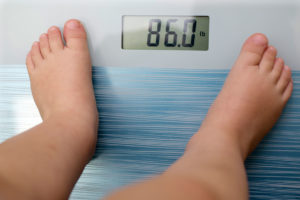Our hands are in contact with our surroundings more than any other body part. The COVID-19 pandemic has brought several red flags to light when it comes to maintaining proper hygiene, most notably with hand washing. To prevent the spread of contagious diseases and reduce exposure to bacteria, viruses, and germs, frequent and proper handwashing is a must.
Do you want to know if you are washing your hands properly? Avoid these five major mistakes that may be sabotaging your hand washing.
#1 Washing Your Hands Too Quickly
Many of us are guilty of being inconsistent when it comes to washing our hands. We flip open the faucet, rinse for a second or two, get a few squirts of soap, rinse for a couple of seconds, and then go off to the next activity of the day.
You should be washing your hands for at least 20 seconds—twice the length of the Happy Birthday song—to eliminate harmful germs from your hands and prevent illness. Make sure you get in between your fingers, the backs of your hands, and under your nails, too.
#2 Touching Dirty Surfaces or Items After a Wash
After washing your hands, make sure not to touch surfaces or objects that may contain germs or bacteria, such as the faucet or door handle. These surfaces can contain a lot of germs, especially in public restrooms. This mistake may be the hardest to avoid because of how inconvenient it can be to correct it. To avoid touching dirty surfaces after washing your hands, have paper towels on-hand or a clean towel to dry your hands and turn the faucet off as well as to open the door as you exit.
#3 Not Washing Your Hands Regularly
Think of a typical day and try to recall how many things you touch. Think about how many other people also touch these objects or surfaces and the germs you may be picking up as a result. You can easily infect yourself when you touch your eyes, nose, or mouth with germ-infested hands.
To limit the germs we pick up and transfer, we must all practice frequent hand washing. Try your best to wash your hands before and after meals, when you clean wounds, and after you have touched an object that may be a breeding ground for bacteria, viruses, or germs. Also clean your hands after you touch your pets, handle garbage, use the toilet, cough, sneeze, or blow your nose.
#4 Using Hand Sanitizer Instead of Hand Washing
Do not let the product descriptions and marketing ploys fool you. Traditional hand washing is still better in getting rid of the germs and bacteria on your hands. Thorough soaping and rinsing are more effective and can remove harmful things you have collected on your hands much better than hand sanitizer can.
If there is no other choice but to use hand sanitizer, make sure that it contains at least 60% alcohol. Hand sanitizers with an alcohol concentration of over 60% are more effective at killing germs.
#5 Not Using Soap at All
This is a mistake committed by many people and one you should do your best to avoid. Merely rinsing with water will not get rid of the oil on your hands, where germs often stick. When washing your hands, make sure to lather your hands with soap, scrub them well, and rinse off the soap, oils, and germs.
Improve Your Hand Washing Technique to Prevent the Spread of Germs and Disease
Hand washing is an often overlooked aspect of maintaining proper hygiene and preventing the spread of viruses and contagious diseases. However, it is a major defender against sickness. We all want to stay healthy, therefore, we must observe proper hand hygiene and avoid the mistakes that defeat the purpose of hand washing. Clean your hands often and properly to avoid the coronavirus and other diseases and keep you and your family safe.
Primary Care in Wellington and Royal Palm Beach, Florida
You must stay vigilant and look out for your health and the health of your family. If you live in Florida, the providers at Advanced Medical Clinic can assist you when you get sick. We offer family-oriented and comprehensive care for your health care needs. Get in touch with us today. If you have inquiries or you wish to schedule a consultation, call us at (561) 434-1935 or book an appointment online.



